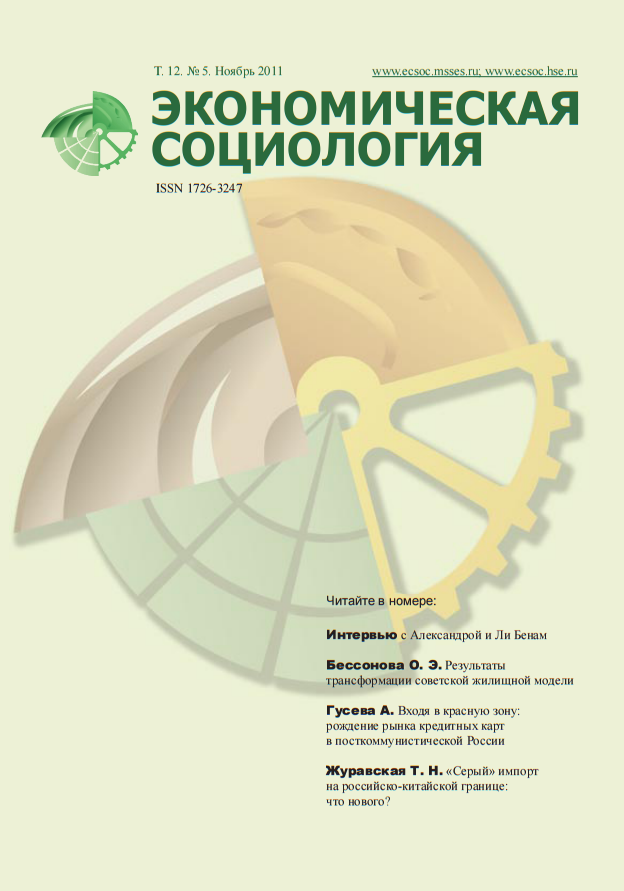Outcomes of Transformation of the Soviet Housing Model
Abstract
Despite the 20 years of economic transformation from the redistributive system (razdatok) to the market, the Russian modern housing policy has returned to the large-scale introduction of departmental and public housing and municipal mortgage (at reduced rate) for government employees. It resulted from the mechanism of market-razdatok equilibrium. In the course of historical changes in Russia it came through three institutional cycles. At structured phases of these cycles the razdatok turns out to be in the front while at the transformation stages a quasi market is formed. Both models generate significant outcomes but then face a crisis. This impasse is usually resolved by mutual replacement of these models. The new housing policy should synthesize market and redistributive (razdatok) mechanisms as indicated by the experience of welfare states’ formation in the developed countries













